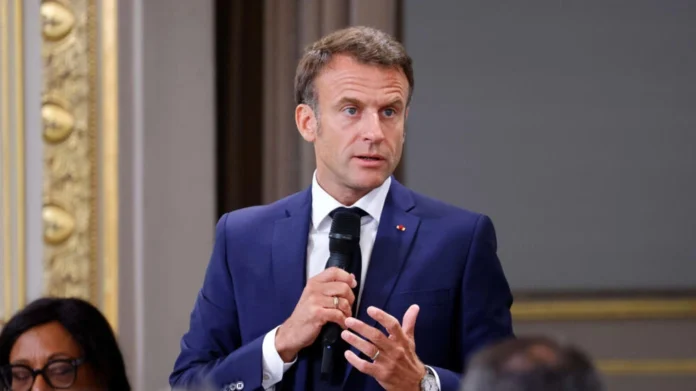PARIS (AFP)-President Emmanuel Macron’s government faced a backlash Wednesday after the centrist leader called for powers to “cut off” social media in case of widespread violence like riots over the past week. French President Emmanuel Macron’s proposal to allow social media platforms to be “shut down” in the event of widespread violence has drawn backlash and criticism from opposition politicians and civil society. Macron’s comments came after recent violent clashes after police shot dead a 17-year-old boy.
Macron and his ministers have specifically cited platforms such as Snapchat, TikTok and Telegram as contributing to the spread of violent images, but have said they will regulate or cut down on social media platforms. The proposal has met with fierce opposition. Critics say the measures are reminiscent of censorship in countries such as China, Iran and North Korea.
Opposition politicians on both the left and right have condemned the proposal, with some calling it distracting and offensive. Green Party leader Marin Tondellier expressed concern at the idea of shutting down social networks and questioned the status quo of French democracy.
Even within Mr Macron’s own parliamentary camp, there are voices against the idea. Some lawmakers argue that shutting down social networks means giving in to tools used against democracy, underscoring the need to find alternative solutions.
In response to criticism, the government clarified that shutting down the social network is not being considered at this time. Instead, the focus is on changing existing social media laws through discussions with lawmakers. The government intends to explore potential legal avenues and make specific amendments to the ongoing social media bill to address concerns related to incitement to violence.
Overall, Macron’s proposal to regulate or block social media platforms has sparked a controversial debate about the balance between freedom of expression, public safety and the role of digital platforms in society. The government’s plan to change the law suggests it may move to targeted regulation rather than shutting down social media altogether.
President Emmanuel Macron’s proposal to allow social media platforms to be “shut down” in the event of widespread violence has drawn widespread criticism and backlash. The proposal raised concerns about freedom of expression and possible censorship. Critics say the measures are more consistent with authoritarian regimes like China, Iran and North Korea than an advocacy of democratic values.
Opposition parties, including politicians on both the left and the right, strongly condemned Mr Macron’s proposal. They believe it distracts them from more pressing issues and argue that it undermines democratic principles. Green Party leader Marin Tondelía expressed concern about the current state of democracy in France if shutting down social media was the solution.
Even within Mr Macron’s own parliamentary camp, there are voices against the proposal. Some lawmakers have argued that shutting down social media would yield to tools that undermine democracy, highlighting the need to find alternative solutions.
In response to criticism, the government clarified that shutting down the social network is not being considered at this time. Instead, the focus is on changing existing laws related to social networks through discussions with lawmakers. The government hopes to address concerns about incitement to violence by considering possible legal avenues and making specific amendments to the current bill on social networks.
Overall, Macron’s proposal sparked a controversial debate about the balance between freedom of expression, public safety and regulation of social media platforms. The government’s decision to change existing laws suggests a possible shift to targeted regulation rather than a complete shutdown of social media. The outcome of these discussions will determine how the French government addresses the challenges posed by the prevalence of violence and extremist content on social media platforms.






